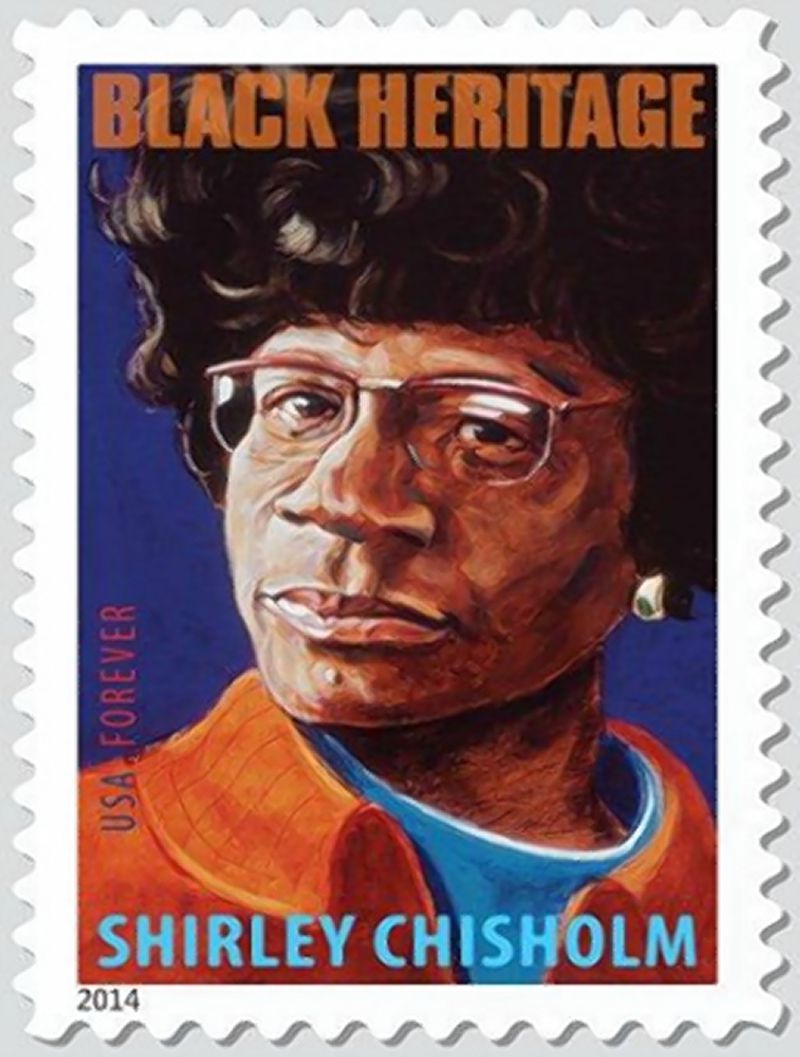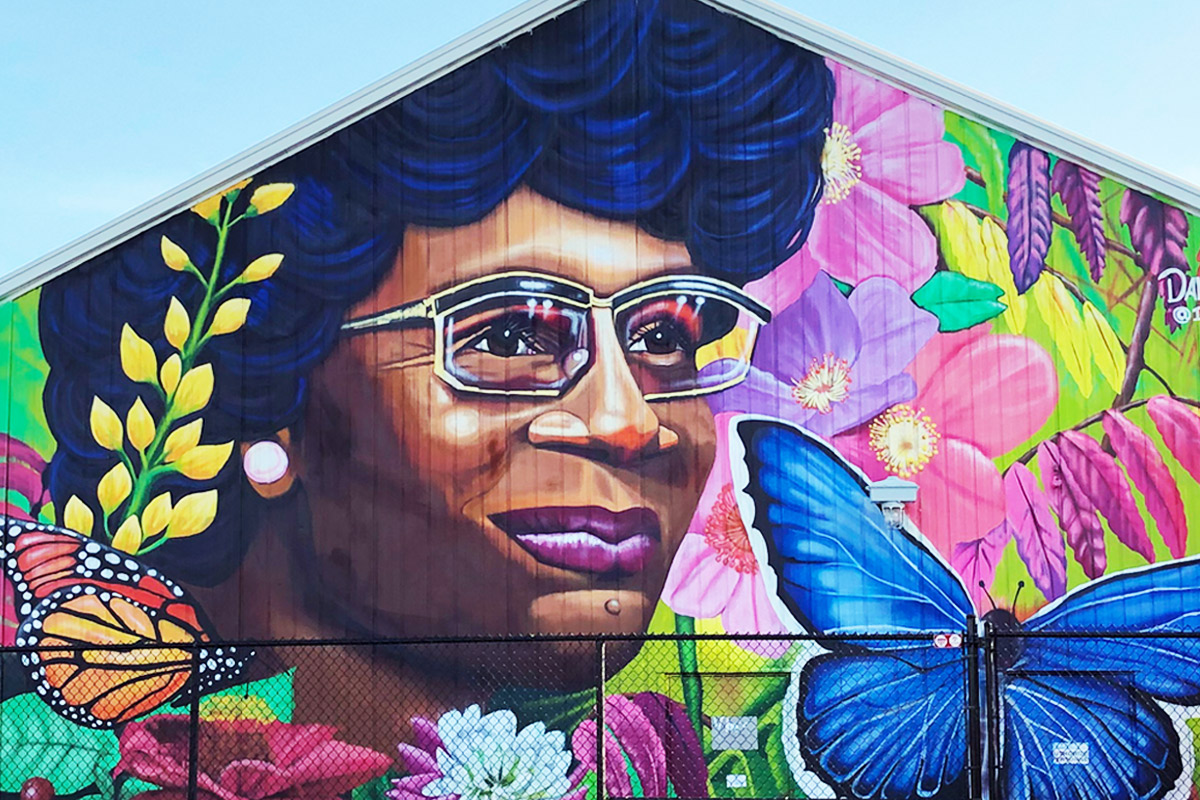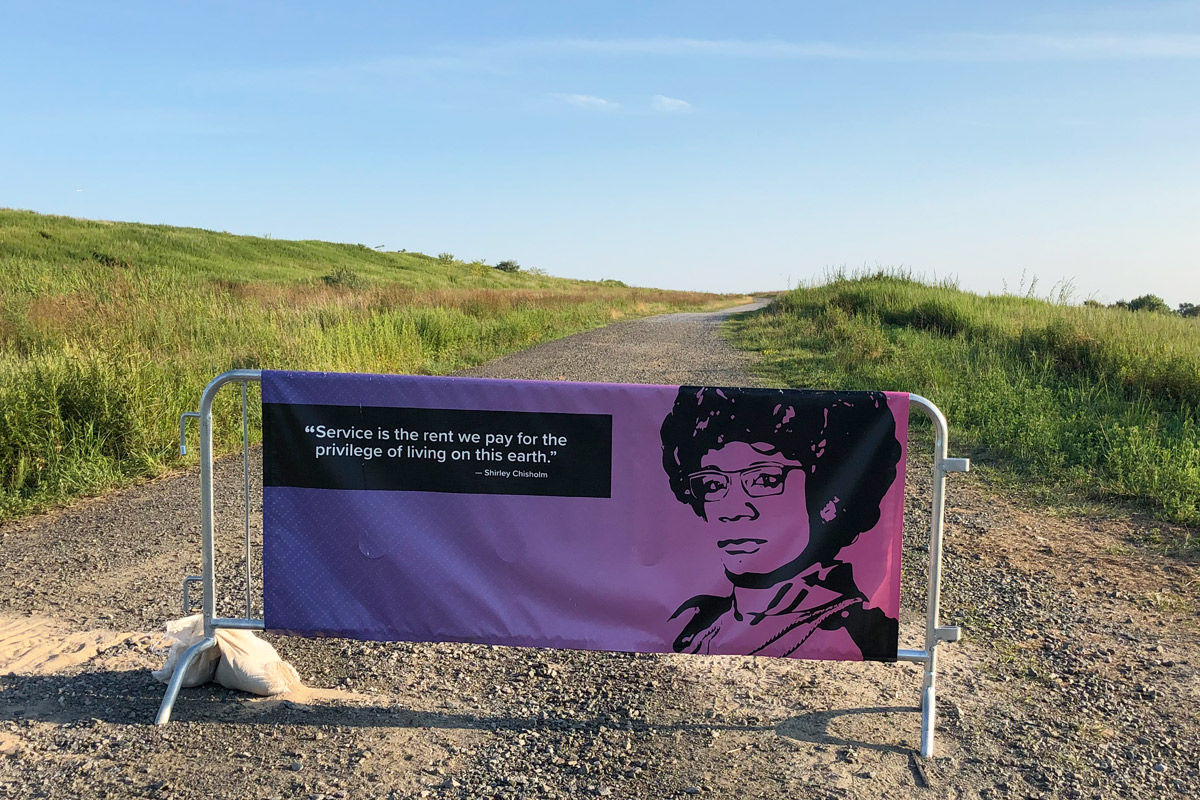The headline in the New York Times in July said it all:
2019 Belongs to Shirley Chisholm.
Indeed.
The celebration of Chisholm’s life and career in public service coincides with the 50th anniversary of the year that the TC alumna (M.A. ’51, Curriculum & Teaching,) was sworn in as the first African American female elected to the U.S. House of Representatives. And the tributes, both symbolic and tangible, continue to roll in from sources that range from Chisholm’s beloved Brooklyn to the corridors of Washington power to Hollywood, where a biopic starring Academy Award winner Viola Davis is in the early stages of production.
A ribbon-cutting in July opened the gates to the 407-acre Shirley Chisholm State Park in Brooklyn – Chisholm’s birthplace, the borough she represented in Congress for 14 years and the base from which the Democrat launched her 1972 bid to become the first black woman to appear on a major party ticket for president. Built atop a repurposed landfill overlooking Manhattan, Chisholm Park is the largest expanse of New York City parkland managed by the State Department of Parks, Recreation and Historic Preservation.
Chisholm, who died at the age of 80 in 2005, will be further honored in Brooklyn upon the completion next year of “Our Destiny, Our Democracy,” a 40-foot steel silhouette of the Bedford-Stuyvesant native, in a corner of Prospect Park.
Cast in her signature yellow, the statue will weave a visage of Chisholm into a facsimile of the U.S. Capitol dome.
The design, by Amanda Williams and Olalekan Jeyifous, is part of a public art initiative to recognize the contributions of women to the New York City aesthetic. The effort, She Built NYC!, was undertaken to accrue gender parity in a metropolis where just five public statues, out of 150, salute accomplished women. “Our Destiny, Our Democracy” will be the sixth – a fitting tribute to Chisholm, who, among her many other accomplishments, helped expand the nation’s Food Stamp program and create the Special Supplemental Nutrition Program for Women, Infants and Children.
The tributes, both symbolic and tangible, continue to roll in from sources that range from Chisholm’s beloved Brooklyn to the corridors of Washington power to Hollywood.
“From many vantage points, you will see [Chisholm’s] image, her iconic afro, her glasses and the colorful patterns of the clothing that she wore,” Williams told the Brooklyn Eagle. “But at the same time there are other symbols that relate to the way in which she really pushed to open up the democratic process by using the Capitol dome itself as a symbol of that and creating a door or an opening within that.”
ARTNews took note of a design feature that connects Chisholm to the 20 women of color currently serving in the U.S. House and Senate: “The ground beneath the statue will be curved like the floor of Congress, the empty space around it representing the women who have followed in Chisholm’s footsteps, entering the doorway that she left open for them.” Among them is Senator Kamala Harris (D.-California), who has borrowed the color scheme (red and yellow) and typography from Chisholm’s trailblazing 1972 candidacy for her own 2020 presidential campaign.
Harris is also co-sponsoring a bill with Brooklyn Democratic Representative Yvette Clarke to install a likeness of Chisholm in the U.S. Capitol, an honor accorded to just five prominent African Americans: Martin Luther King, Jr., Rosa Parks, Frederick Douglass and Sojourner Truth.

PUSHING THE ENVELOPE The pioneering Congresswoman was posthumously honored in 2014 with the issuance of a limited-edition 37th Black Heritage Forever Stamp. (Photo: US Postal Service)
Meanwhile, the film “The Fighting Shirley Chisholm” promises to re-introduce the “unbought and unbossed” legislator to audiences beyond Brooklyn and the Washington Beltway.
Juvee Productions, the production company owned by Viola Davis and her husband, Julius Tennon, is launching the screenplay in partnership with Amazon Studios. The film is based on the 1975 Chisholm biography by James Haskins.
The Washington Post wrote that Davis, the first black actress nominated for three Academy Awards and the only African American woman of color to capture the so-called triple crown of acting (Emmy, Oscar and Tony), is a “natural fit” for bringing Chisholm to the screen.
Of course, there’s one other tribute to Chisholm, which holds particular meaning on West 120th Street: The Shirley Chisholm Dissertation Award, given to a recent TC scholar whose dissertation deepens understanding of the value and contributions of people of color in advancing the aims of democracy through racial and gender equality, immigrant rights, and access to improved education and healthcare in the United States.
When Kathryn Bassett Hill (Ph.D.’18, M.A.’10) won the award in 2018 for her dissertation on the relationships that black New York City parents form with their children’s schools, she directly cited Chisholm as an inspiration. Hill – now Dean’s Faculty Fellow at NYU’s Research Alliance for New York City Schools – said that her own parents' vigilance that “everything was going well in the classroom” exemplified a famous Chisholm adage: “If they don't give you a seat at the table, bring a folding chair.”



